- Advertising
- Bare Metal
- Bare Metal Cloud
- Benchmarks
- Big Data Benchmarks
- Big Data Experts Interviews
- Big Data Technologies
- Big Data Use Cases
- Big Data Week
- Cloud
- Data Lake as a Service
- Databases
- Dedicated Servers
- Disaster Recovery
- Features
- Fun
- GoTech World
- Hadoop
- Healthcare
- Industry Standards
- Insurance
- Linux
- News
- NoSQL
- Online Retail
- People of Bigstep
- Performance for Big Data Apps
- Press
- Press Corner
- Security
- Tech Trends
- Tutorial
- What is Big Data
[People of Bigstep] Nicoleta Dobre – Diving Into the Unseen Side of Humans
Nicoleta Dobre, HR Business Partner at Bigstep, took this interview opportunity to share with us some insights about being an HR professional in one of the most challenging and rewarding industries – IT and bare metal server infrastructure. Read what she has to say about psychology, human resources, and find out some tips and tricks for your personal and professional career paths.
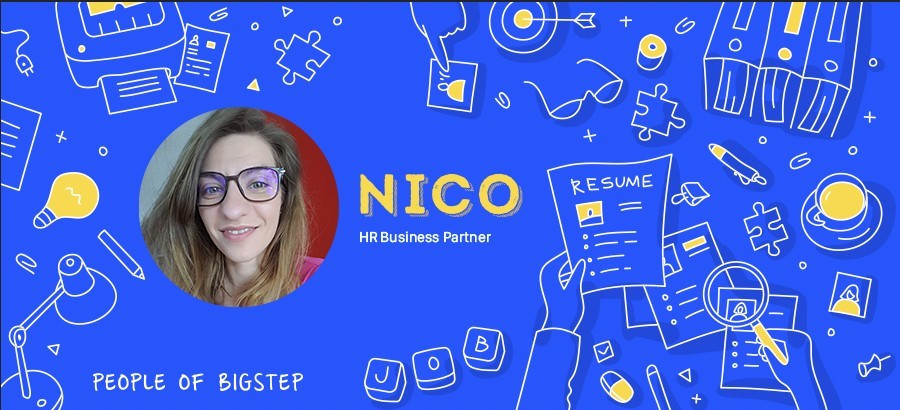
Hi Nicoleta, please tell us a few words about yourself!
Hello! I’m the kind of person who takes on any challenge with hope. I love to be around people, to connect, develop together, create a supportive work environment and empower everyone to grow into a strong professional and a kind person. Truth, honesty, fairness, these are some of my core values that I bring both into my work and in my personal life. I really enjoy what I do and feel that I’ve had great support inside Bigstep to develop, learn and grow. Outside work I enjoy spending time with friends, family, books and my cat, Alma. I take great energy from being outdoors, travelling and meeting new people, ideas, and cultures.
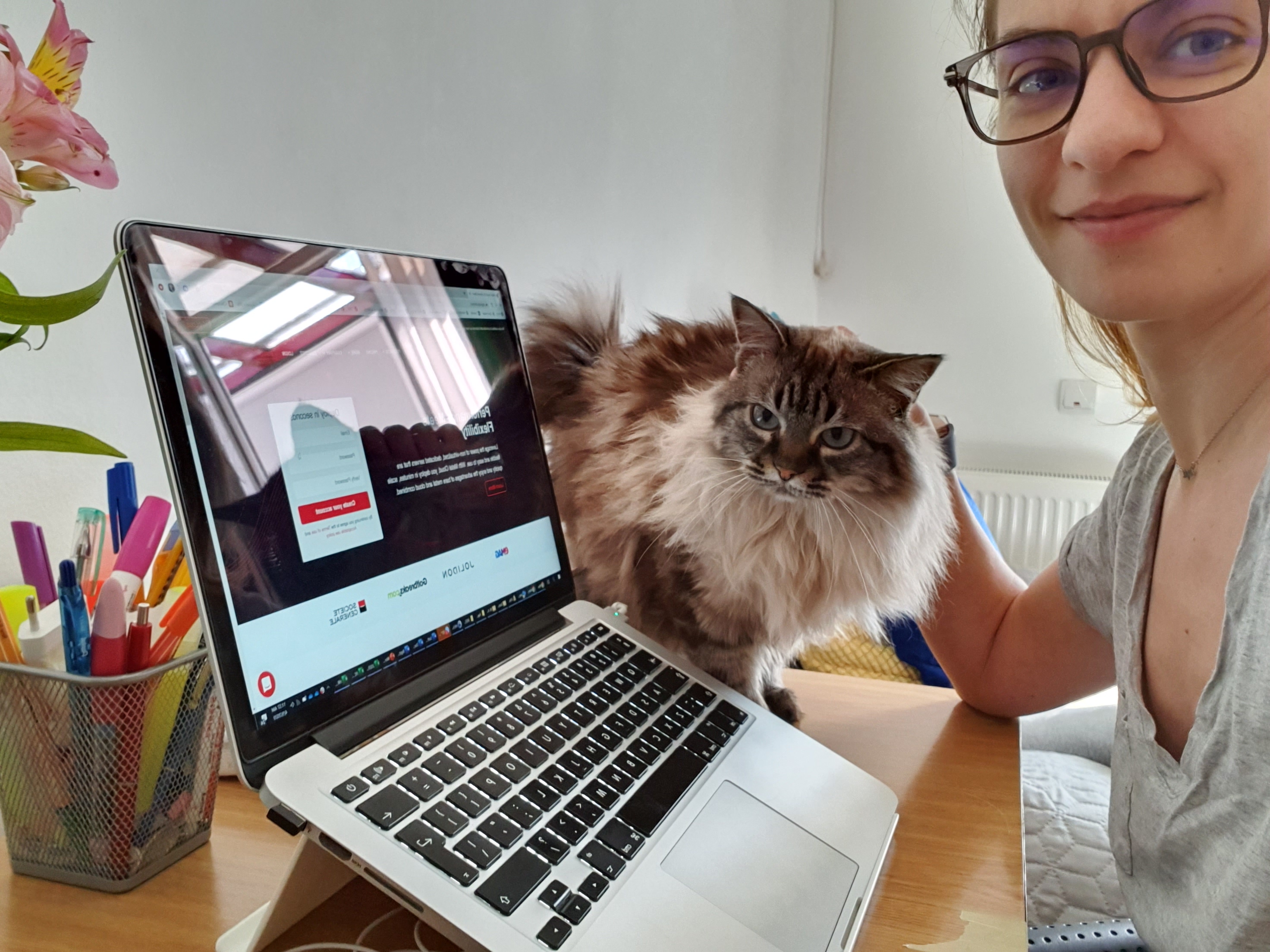
For instance, I believe the people I connect with in the IT industry have a special quality about them, they are open minded, passionate and sometimes visionary in their work and ideas. I find that there is a significant difference between having a 9 to 5 job and being truly committed to what you bring inside the organization and community at work. Putting passion and ideas into what we do not only brings great results for the business, but it also gives us satisfaction and purpose.
As an HR professional, this is something I encourage both inside the company but also, it’s what I’m looking for in potential colleagues to bring onboard. I am grateful to work in a company where this is valued and encouraged.
How does your work day look like?
As an HR Business Partner, I am a moderator between the company and the employees. At the core of Bigstep there is us, the people. I strive to maintain a healthy balance between the two, with great support from both sides. It is also my job to know each role in the company, the impact it has in the business, the hard and soft skills needed, the part it plays in the team and so on.
Going deeper into details, I make sure our recruitment needs are met, and I introduce the new colleagues to the team. I also make sure all administrative aspects are looked after. I respond to any requests on HR related matters. I support the management on any issues and offer consultancy whenever it’s needed. Another thing I like to do is stay up to date with technologies and always ask our tech colleagues for info and details about our products. I organize events, implement benefits. I also talk to my colleagues, listen to what they have to say and make sure their voice is heard. I get a lot of help and support in my job from my manager, my team, the management team and all of my colleagues. In the end it’s all about teamwork.
At the core of everything stands our combined effort put into creating a community inside the company, based on collaboration, passion, empowerment, purpose and pride to work here, at Bigstep.
You’ve recently started studying psychology. Why psychology?
It feels like yesterday, but it’s actually been almost two years now. I think it will help me in my job, to understand people better, to communicate and bring my support in the right moment and place. But it is more than that. As sentient beings, we are so much more than what meets the eye. I want to dive into this unseen side of humans, understand and eventually contribute to the healing process.
Which branch of psychology interests you the most?
There are actually 3 directions that interest me and I believe they complement each other: integrative psychology (it refers to bringing together all the systems in a person – behavior, affects, cognition; it is a very adaptive approach), somatic experiencing (it works very much with the trauma and sensations stored in the body) and last, transpersonal psychology (it integrates the singular human existence into the world that surrounds us, beyond the personal level – see the collective unconscious from Jung).
Can you recommend to our readers three psychology-related books that you believe would help them in their personal and/or professional life?
This is a bit challenging because I think, before looking at the professional side, we should look deeper into our personal plan. After looking at who you are and what made you that way, only then can you start building your personal and professional life in a healthy way, from an adult stance.
I encourage everyone to start with Human Development, by Diane E. Papalia, Sally Wendkos Olds, Ruth Duskin Feldman – a journey from the moment of conception until adulthood, with all the influencing factors, including cultural and historical ones. A second book that will take you to the amazing world of neuroplasticity and how the brain has the power to transform throughout our lives is The Brain that Changes Itself by Norman Doidge. And finally, take a step back and reflect of your life journey so far, what you bring to the world and what you leave behind. Irvin Yalom, in his book Staring at the Sun, tries to give us an existentialist perspective over life and death.
What do you consider to be the most important traits for a psychotherapist to have?
Here I will be short because there is literally only one thing any responsible psychotherapist should do: have her/his own process, to work on all traumas, look at all mechanisms and become aware of their own emotions and behavior. It is a lifelong process that should never stop in this job. Only by being aware of what you bring, you can hold a healing space for people who seek help.
Is psychology aiding you in your current job as an HR professional, and if yes, how?
It certainly is aiding me in my role. I have become more patient, I can see some defense mechanisms better and differentiate them from the adult stance. I can communicate better with colleagues and candidates.
As an insider, can you tell us the three things people should focus on when applying to a new job?
Clarify with yourself what you want (to do, learn, bring), practice your hard skills and be open when talking about yourself. Giving a rehearsed answer doesn’t help anyone. The purpose is to have both sides in a fair engagement in the end.
What makes the difference between two candidates: drive or skills?
I think it depends a lot on the role, but if I had to pick one it would be the drive.
Is there a red line that if you hear in an interview will set your mind about the candidate?
There are quite a lot, but I will name just a few: “I’m not interested in learning new things”; “I yelled at the customer”; “my ex-manager was [insert any truly negative trait] and my colleagues unbearable, but I also never finished my tasks – the issue is still with the organization” (candidates who always put the blame outside of themselves).
The pandemic was hard on everyone. The switch from working in the office to working only from home probably meant a lot of changes in HR procedures and activities. Can you detail how you coped with these changes, both personally and professionally?
I am happy to tell you that as an organization, Bigstep was prepared for this switch and we all handled it with speed and professionalism. On the HR side I am grateful that I get a lot of support from my manager and team as well, so we implemented everything together, it was a team effort.
At the beginning of the pandemic, I started adapting the recruitment process, the induction and everything else. But I can wholeheartedly say being remote hasn’t impacted the quality of my work or the work at company level. However, I appreciate the face-to-face interaction and I do think any organization can benefit a lot by having people working together in the same room. Ideas flow more easily, debate is sustained, and I believe progress comes better from this kind of team interaction. I am hopeful that we’ll reconnect this way soon.
Which are the three things that you enjoy most about working at Bigstep?
People, empowerment, technology.
Christmas is just around the corner. What are some of the most memorable activities you organized within the company?
Oh, this will bring a bit of nostalgia, as December is one of my favorite months. We celebrate St. Nicholas, have a Secret Santa lottery with lots of sweets, and organize the Christmas party. We made some great memories over the years during this time in Bigstep.
Let’s end on a smile: can you tell us a funny work-related story?
This is a more endearing story, rather than funny, but I will tell you about it anyway. Over the years we’ve had two company mascots if you will, represented by two cats that we sort of adopted. They would come for food and snuggles during the day and they were incredibly loved by our team.
The tomcat named Gaston eventually ran away, but the girl cat, Cerasela, was happily adopted by one of our colleagues and she’s now master of the house. I do remember one of the candidates that came to an interview and saw her on the ground floor – he was a bit scared of the cat but managed to keep a straight posture. I appreciated that! Here are our two mascots:
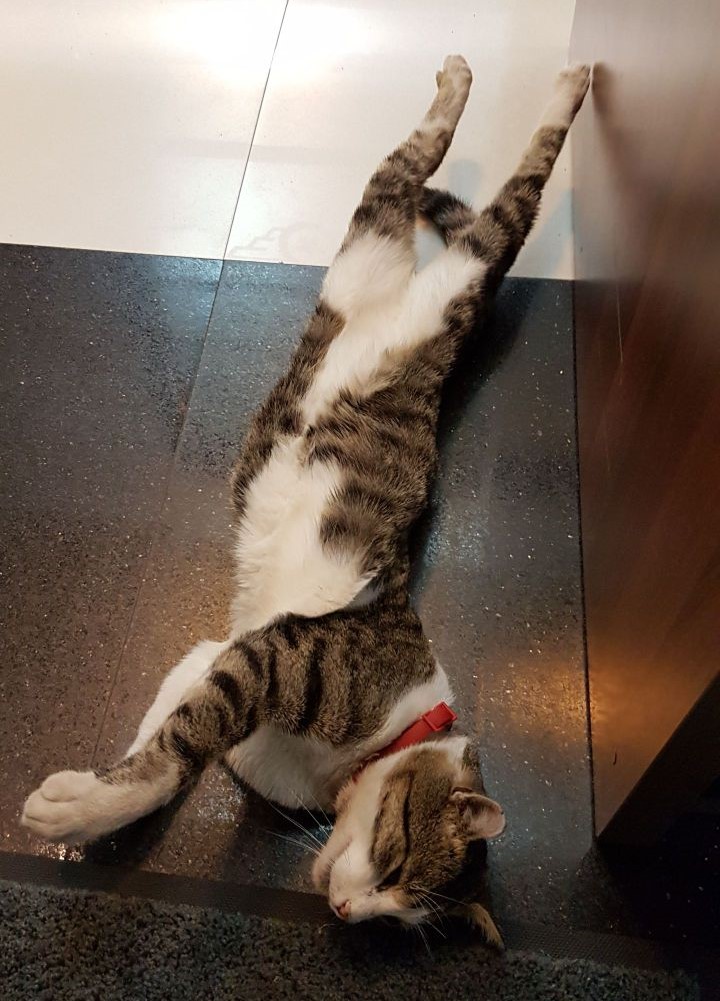

I want to leave you all with a quote I like, that’s attributed to Mahatma Gandhi:
We but mirror the world. All the tendencies present in the outer world are to be found in the world of our body. If we could change ourselves, the tendencies in the world would also change. As a man changes his own nature, so does the attitude of the world change toward him. […] A wonderful thing it is and the source of our happiness. We need not wait to see what others do.
Readers also enjoyed:
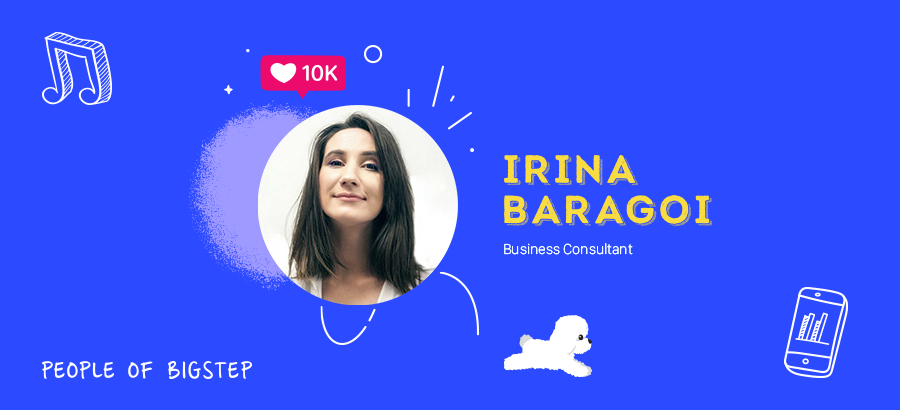
[People of Bigstep] Irina Baragoi: “It was a match made in… Cloud”
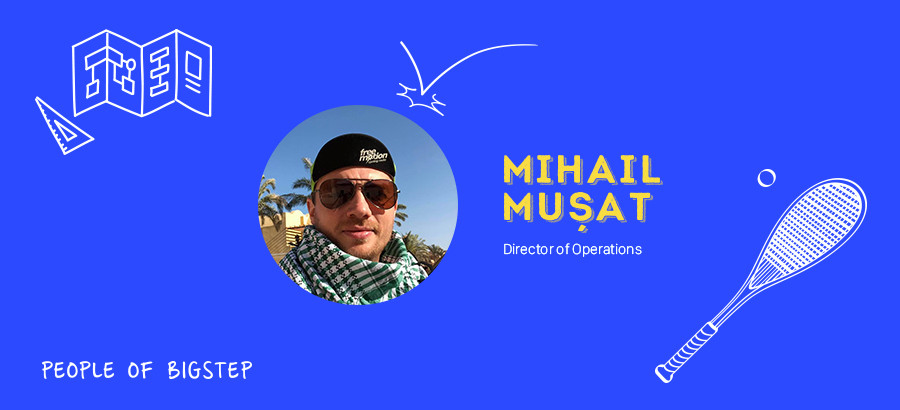
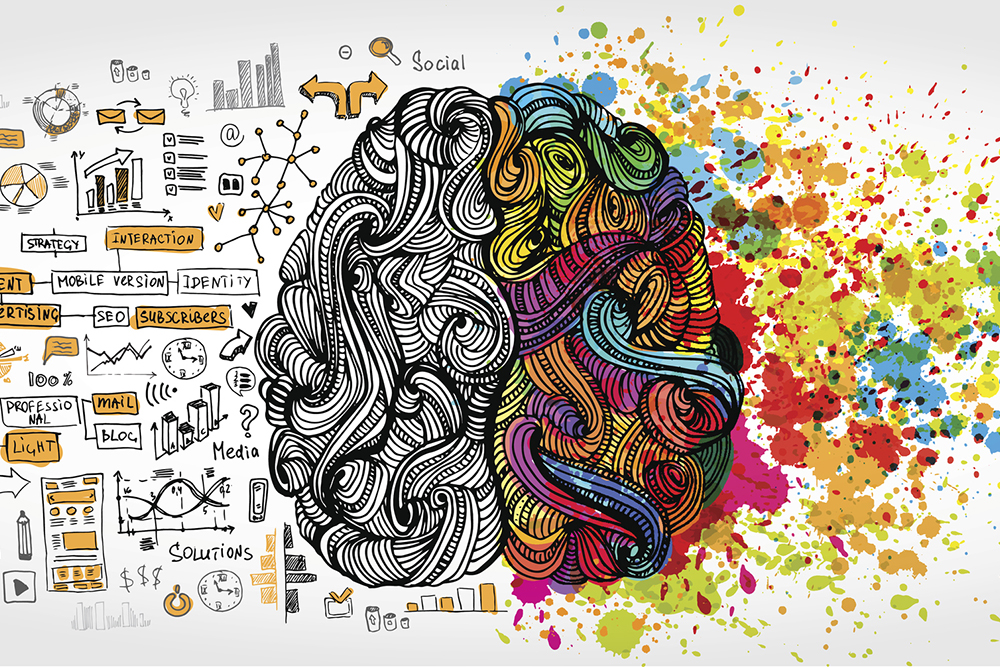

Leave a Reply
Your email address will not be published.